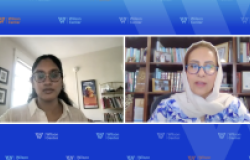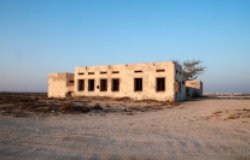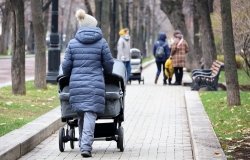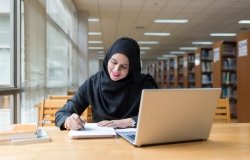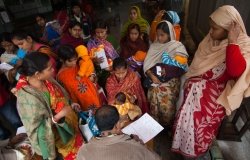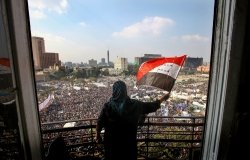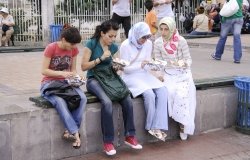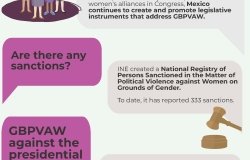Iraqi Women Leaders in Engineering and Applied Sciences
Dr. Alkhazragy, Lecturer/Assistant Professor, University of Technology, Baghdad, and Visiting Scholar, Stanford University; Dr. Mustafa, Lecturer, Engineering College, University of Salahaddin, and Visiting Scholar, UC Berkeley; Ameer, Professor, College of Science, University of Al-Mustansirya, Baghdad, and Visiting Scholar, UC San Diego
Overview
Three Iraqi women engineers discussed their experiences as participants in a U.S.-sponsored fellowship program designed to empower Iraqi women in the fields of science and engineering and to support them in taking leadership roles to assist in rebuilding their country. In articulating their willingness to help their people and their country, each panelist expressed gratitude for the opportunity to learn at leading U.S. universities and their ability to take back essential knowledge and practices to strengthen the foundation of Iraq.
The Middle East Program of the Woodrow Wilson Center and the Iraqi Women's Fellowship Foundation hosted the panel discussion with Dr. Alkhazragy, Assistant Professor, University of Technology, Baghdad and Visiting Scholar, Stanford University; Dr. Mustafa, Lecturer, Engineering College, University of Salahaddin and Visiting Scholar, UC Berkeley; and Professor Ameer, Professor, College of Science, University of Al-Mustansirya, Baghdad and Visiting Scholar, UC San Diego, on February 25, 2010. Haleh Esfandiari, director of the Middle East Program, moderated the event.
Mary Oakes Smith, president and founder of the Iraqi Women's Fellowship Foundation (IWFF), provided opening remarks regarding the mission of the IWFF, describing the foundation as dedicated to building capacity and fostering leadership in Iraqi women in science and engineering in order to help the reconstruction and development efforts in Iraq. Ambassador Samir Sumaida'ie, the Iraqi Ambassador to the United States, commented on the extensive history of women's roles in Iraq stating, "Iraq was always a pioneer in giving women space and a role in public life." While Ambassador Sumaida'ie noted changing social attitudes on how women are perceived and what women's rights entail in Iraq, he indicated the three Iraqi women on the panel were serving as role models for other women in Iraq.
Also remarking the strength of women's rights in Iraq since its founding in 1920, Professor Ameer, a specialist in information technology, emphasized the need for women to be involved in rebuilding Iraq, particularly in the fields of management, science, technology, and education. She stated her dreams would be for more women to become involved in the IWFF program and for Iraq to be safe and strong after the upcoming elections on March 7, 2010.
Dr. Mustafa, who specializes in electronic and communication engineering, highlighted the main strengths of the IWFF program are the experiences in her field that she can take back to her university in Iraq to better educate her students and assist her colleagues. Upon her return to Iraq, she indicated she also hopes to achieve good relations between the university and the field, a strength she noted of the U.S. system.
Among Dr. Alkhazragy's most significant opportunities have been her experiences that helped improve her skills in teaching and researching in her field of power engineering. She also stated that because knowledge of renewable energy sources, and solar energy in particular, is important for Iraq due to impending water shortage issues, she plans to build a solar energy scientific center after she returns to Iraq.
The three women were in agreement that they had not had difficulty studying at universities in Iraq or in their careers because they explained there is no distinction between genders in universities or in fields of study.
Drafted by Kendra Heideman on behalf of the Middle East Program
Hosted By

Middle East Program
The Wilson Center’s Middle East Program serves as a crucial resource for the policymaking community and beyond, providing analyses and research that helps inform US foreign policymaking, stimulates public debate, and expands knowledge about issues in the wider Middle East and North Africa (MENA) region. Read more
Thank you for your interest in this event. Please send any feedback or questions to our Events staff.

